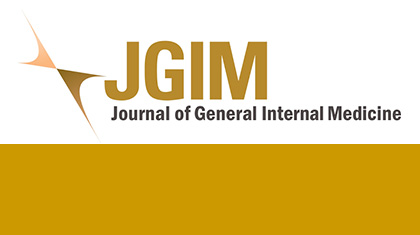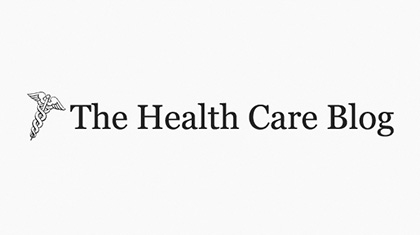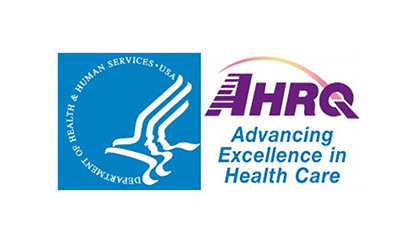Offering patients online access to medical records, including doctors’ visit notes, holds considerable potential to improve care. However, patients may worry about loss of privacy when accessing personal health information through Internet-based patient portals. The OpenNotes study provided patients at three US health care institutions with online access to their primary care doctors’ notes and then collected survey data about their experiences, including their concerns about privacy before and after participation in the intervention.
Jan Walker
Open Notes: A New Resource for Nurses
By Jan Walker RN, MBA, Suzanne Leveille RN, PhD, and Melissa Anselmo, MPH If we truly want patients to engage with clinicians about their health and care, we need to provide them with full and easy access to records that traditionally have been off limits. OpenNotes is a national movement that encourages clinicians—including nurses—to invite patients…
OpenNotes: Hospitalists’ challenge and opportunity
At a time of societal fascination both with transparency and the explosion of health information technologies, a growing number of hospitals are offering, or will soon offer patients and their family instantaneous access to their doctors’ and nurses’ notes. What will this new opportunity for patient engagement mean for the hospitalist? Today, state and federal government regulations either encourage or require healthcare providers to grant patients access to their clinical information. But despite the rules embedded in the federal Health Insurance Portability and Accountability Act (HIPAA), patients often face time-consuming obstacles in their quest for access, and many providers view compliance as a burden. We suggest an alternative view: Over time, we anticipate that inviting patients to review their medical record will reduce risk, increase knowledge, foster active engagement, and help them take more control of their care. The OpenNotes trial provides clues as to how such practice will affect both patients and providers (1, 2). We anticipate that transparent records will stimulate hospitalists, PCPs, and other caregivers to improve communication throughout the patient’s hospital stay. OpenNotes offers a special opportunity for improving the patient experience after leaving the hospital as well. Open notes will be viewed by many as a disruptive change, and the best strategy for adapting will be to move proactively to create policies that establish clear guidelines, for which the authors offer some suggestions.
Interval Examination: Moving Toward OpenNotes
By Jan Walker, RN, MBA & Tom Delbanco, MD, MACP Despite periodic efforts over almost 5 decades, the idea of having patients review and contribute to their medical records has failed to take hold, even though such practice might engage patients more actively in maintaining their health and managing their care and might also improve…
Interval Examination: Moving Toward Open Notes
Despite periodic efforts over almost 5 decades, the idea of having patients review and contribute to their medical records has failed to take hold, even though such practice might engage patients more actively in maintaining their health and managing their care and might also improve quality of care and patient safety. Contemporary trends toward increased transparency, accompanied by evolving health information technologies, provided an opportunity for us to conduct a study examining the effects on both patients and primary care physicians (PCPs) of inviting patients to read their doctors’ visit notes. Bolstered by encouraging findings from this study, and with the goal of informing those who might join in further inquiry, we outline in this “interval examination” challenges we are encountering and strategies we are employing as we explore wider implementation of this practice.
RWJF Year in Research
RWJF Year in Research: An Interview with Thomas L. Delbanco Voted No. 2 Most Influential Research Article of 2012, Thomas Delbanco and Janice Walker co-direct OpenNotes, a project that tests the radical yet simple idea that physicians’ notes should be for the patient, not just about the patient. What was the inspiration for this study—the…
The Health Care Blog: OpenNotes: Drilling Down to Assure a Healthy Evolution
As the instigators of the OpenNotes initiative, we are thrilled that OpenNotes is being adopted by the VA. Prompted by Dr. Kernisan’s thoughtful post , the ensuing lively discussion, and our experiment with 100 primary care physicians and 20,000 of their patients), we thought it useful to offer some observations drawing both on our experiences as clinicians and on…
AHRQ: Online Patient Access to Visit Notes Generates Positive Early Reviews
Innovation Snapshot Summary More than 100 primary care doctors and 20,000 patients at Beth Israel Deaconess Medical Center in Boston, Geisinger Health System in Pennsylvania, and Harborview Medical Center in Seattle participated in a 12-month demonstration project of OpenNotes ® , a program where doctors invite patients to access their notes detailing medical office visits via a…
The urban underserved: attitudes towards gaining full access to electronic medical records
As the use of electronic medical records (EMRs) spreads, health-care organizations are increasingly offering patients online access to their medical records. Studies evaluating patient attitudes towards viewing elements of their records through secure, electronic patient portals have generally not included medically underserved patients or those with HIV/AIDS. The goal of this study was to gain insight into such patients’ attitudes towards online access to their medical records, including their doctors’ visit notes.
Inviting Patients to Read Their Doctors’ Notes: A Quasi-experimental Study and a Look Ahead
Electronic medical records and secure patient portals hold exciting potential for more active patient involvement in care and improved communication between patients and clinicians. These technologies facilitate a potentially disruptive innovation: Doctors can readily invite patients to read and share their visit notes and even contribute to the notes’ formulation. We conducted a quasi-experimental study, OpenNotes, in which more than 100 primary care physicians (PCPs) volunteered to invite more than 20 000 of their patients to review online the notes that the doctors wrote and signed after an office visit







